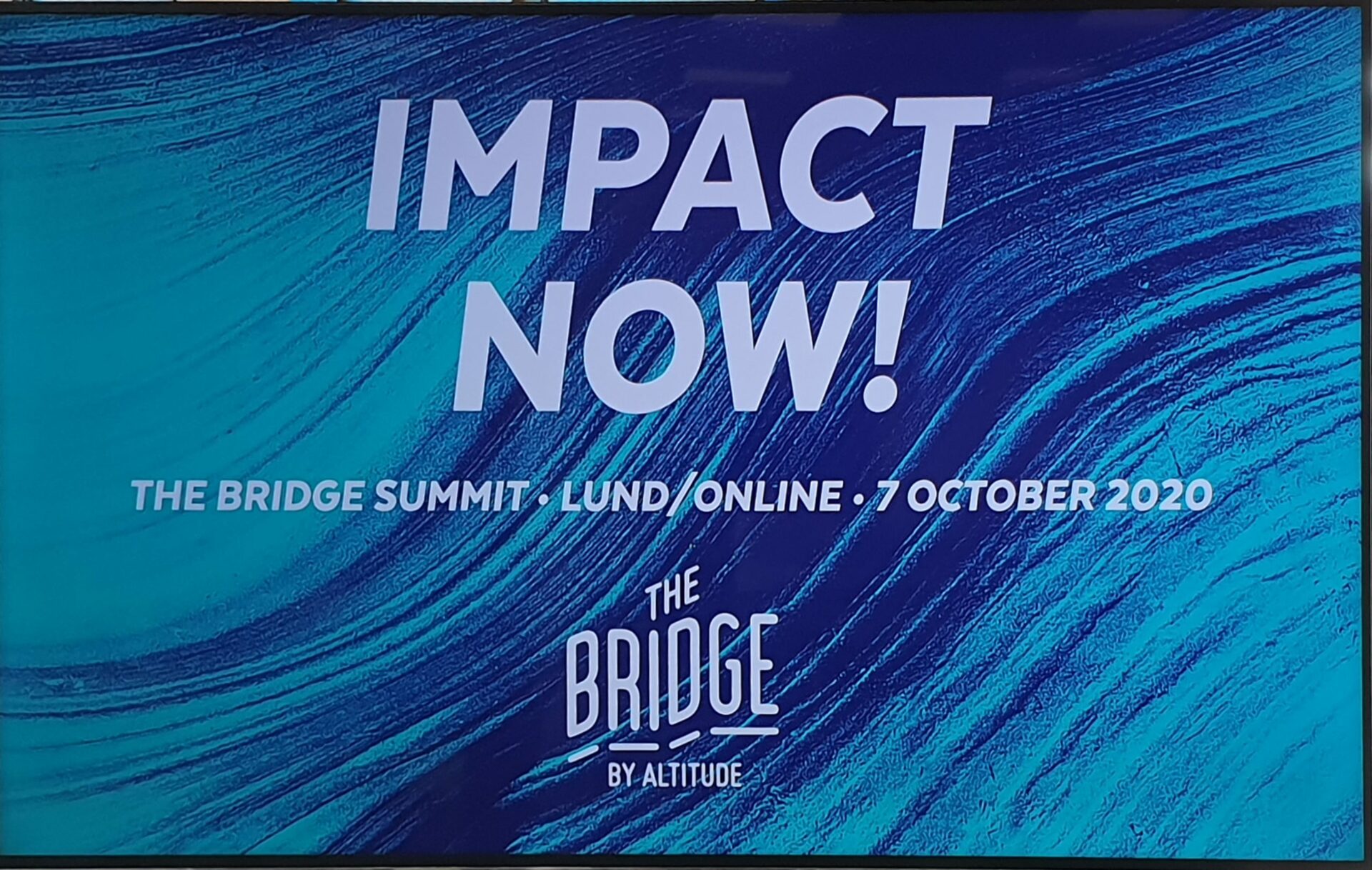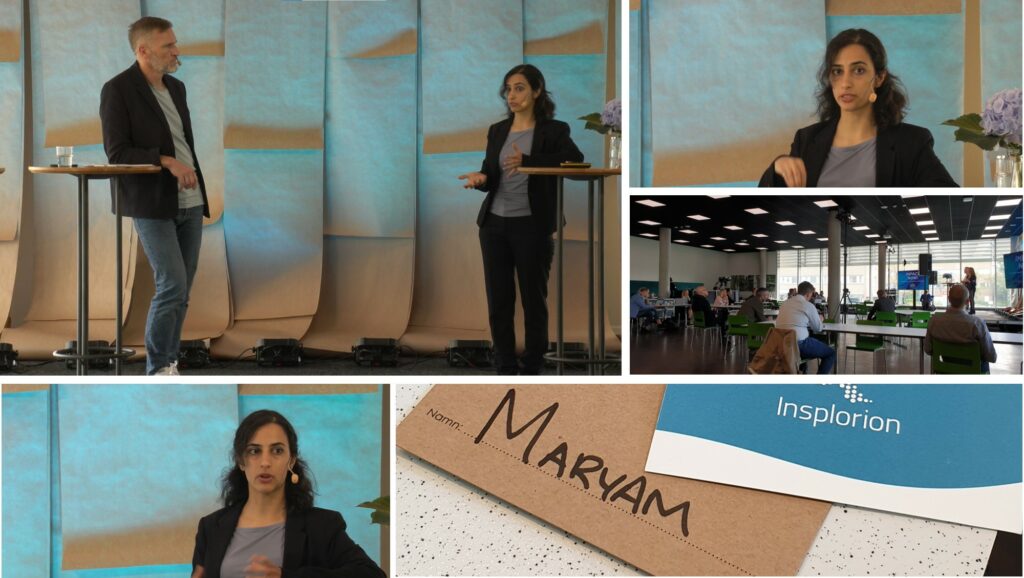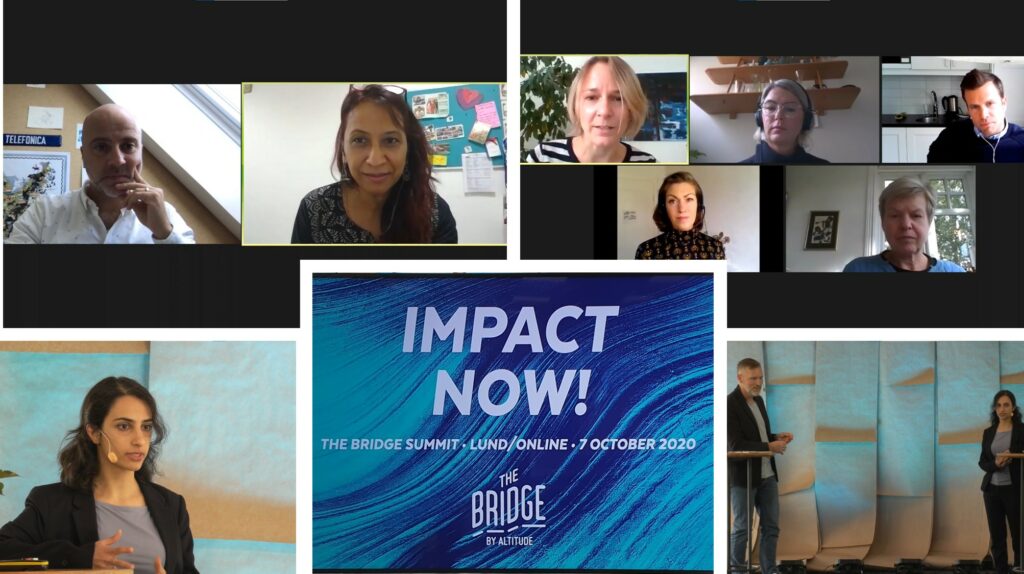Bridge Summit 2020
October 9, 2020

The session was all about identifying stakeholders, gather potential solution providers and pinpointing synergies that will lead to pilot projects. Our challenge was brought forth by Clean Air Asia, an NGO, working to set up ways to reduce air pollution in New Delhi, including a pilot project in the upcoming months. I was also able to meet and connect with other participants interested in pollution monitoring in fast-growing cities across the globe. This is of course very exciting for us at Insplorion not only because it will let us test our sensors in harsher environments and higher pollution levels, but also because of the greater impact we can have in terms of helping improve air quality and health for more people.
While the event has a history of four previous iterations, this is the first time it has taken place as a hybrid mix of presential and virtual attendance. The Bridge aims to bring together and connect companies, national and international organisations, NGOs, researchers, institutes, regions, and the public sector in order to address current and future global challenges. This year approximately 50 people were present in Lund while over 300 people joined online for the various talks. The morning session covered new economic models: why we need them and how we can go about achieving them. Speakers connected in from Canada, Greece, Stockholm, Peru, and of course Lund. They were also joined by members of the industry such as Tetrapack and Cemvision who are implementing new models in innovative ways.
The afternoon was all about 8 specific challenges. Insplorion participated in the Climate Track, specifically addressing the challenge “Reducing Air Pollution in Urban Hotspots” brought forth by Clean Air Asia for New Delhi. I was joined by Prarthana Borah, India Director at Clean Air Asia, and Jeff Risom of Gehl. Unfortunately the other technology stakeholders, Axis Communication and Bosch, were not able to join the panel. Jonas Klevhag of The Bridge did a great job moderating the discussion as we looked at the challenge from different perspectives: residents and NGOs, technology, and urban planning. The next step is coming together for a workshop on how we can work together alongside other stakeholders to set up a pilot project in New Delhi.
The climate track also covered challenges on circular value chains, how air-travel is set to evolve in coming years, and how to turn household waste back into valuable resources.
It was an intense day with plenty of information to take in; not to mention the experience of a semi-virtual event and being in front of a broadcasting camera! We wrapped up the summit with key takeaways from the day and plans to reconnect. As for me, I had a train to catch back to Gothenburg shortly after the last session, and despite wanting to, visiting Lund will have to remain for another day.
You can find the a recording of the Climate Track here, with our session starting at around the 51 minute mark.
At 54:30 Prarthana gives an overview of the challenge in New Delhi.
At 1:09:20 Jonas introduces the technology stakeholders: Axis Communication, Bosch and Insplorion.
At 1:18:20 Jeff speaks about measurements in Copenhagen, and how even with “good” air quality, 1600 people per year still face early deaths.
/Maryam


Send us an enquiry.
We’ll get back to you as soon as we can.